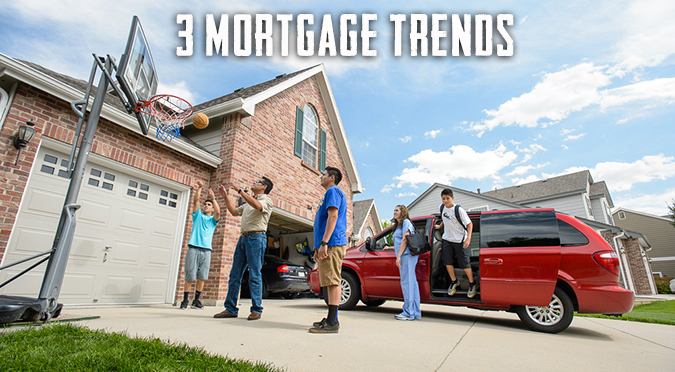Your Colorado home is valuable. So, why not dip into the equity that you have accrued as a homeowner to help reach your financial goals?
Two options to access your home’s equity are a home equity loan and a cash-out refinance. Both options put dollars in your pocket but in very different ways. Let’s examine the differences and discover what is the best option for you!
What is “home equity” and when should you consider using it?
Home equity is the value of your home, above whatever you still owe on your mortgage. These funds can be calculated and loaned to you in good faith that your home will maintain its property value during the life of the loan.
This type of loan is a good option for those who want to borrow money at a low-interest rate (cheaper than putting expenses on a credit card), with no application fee and flexible payment options. Here at Elevations Credit Union, we offer a range of term options and work with in-house underwriters to give you the best service possible.
Consider a home equity loan when you want to tackle a home remodeling project or complete a major home repair (like installing a new heating system). The loan can also be used beyond home improvement projects, such a starting a college fund or paying off high-interest debt on a credit card.
Home equity loans work well for funding one large, one-time expense.
Is a cash-out refinance a better option for you?
A cash-out refinance can be a good option for debt consolidation or other expenditures.
A cash-out refinance is a mortgage refinance at an amount higher than your current mortgage. The amount of the new loan that exceeds the existing mortgage payoff is generally provided to you as cash. You can then use the difference for other financial needs.
With a cash-out refinance, the homeowner could increase debt leverage against a home by a percentage of the home’s value. Different loan programs and property/occupancy types have different maximum leverage percentages or loan to value (LTV). For example, investment properties are capped at 75% LTV, VA Loans 90% LTV, and FHA at 85% LTV.
A cash-out refinance can be a good option for you if you want to consolidate and pay off large credit card debt, prefer a longer-term loan with a lower interest rate and smaller monthly payments, or seek a less costly option than a personal loan.
Choosing the best loan option
Both types of loans will get you cash in hand to assist with other financial responsibilities but in different ways. It’s best to speak with a mortgage loan officer to understand the nuances of each loan type.
We’d be happy to break down the timeline, costs and payment plans associated with each of these loan options. We understand that you have unique financial needs and goals, and we’re here to help you determine which tool can help you achieve them.
Contact us today with your questions. We’d love to help!


